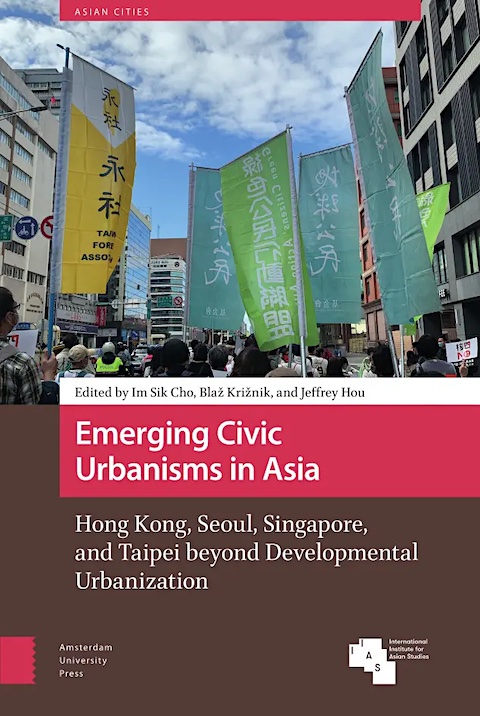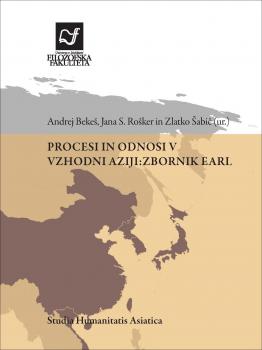With Kim Su
Asian Studies, 9(1)
Faculty of Arts, University of Ljubljana | Ljubljana | 2021 | ISSN 2232-5131
The future of Asia seems to largely depend on the effective management of cities and metropolitan regions. Emerging approaches to urban governance in Asia, addressing social, economic and environmental challenges in a more sustainable way, are well acknowledged. Competition and global aspirations of cities in Asia are at the same time considered major drivers of their urban growth. Less attention, however, is placed on the consequences of urban growth on the everyday life in localities. These are not only passive recipients but also as active agents, capable of responding to competition and global aspirations of cities. Moreover, localities are relevant for their growing importance for inclusive urban governance, which aims to foster community development, collaborative economies, grassroots placemaking or expansion of local autonomy. The 2021 special issue of Asian Studies journal, therefore, aims to explore the diverse consequences of urban growth on the transformation of localities in urban Asia by addressing the following key questions:
● How does urban growth affect everyday life in localities across Asia?
● How do localities sustain or resist competition and global aspirations of cities in Asia?
● What is the importance of localities for building just and sustainable cities in Asia?
The special issue aims to bring together contributions from scholars in human geography, urban and regional planning, environmental management, landscape architecture, urban sociology and anthropology, cultural studies or political sciences, which can contribute to a comprehensive understanding of the local transformations in urban Asia. It aims to focus on residential neighbourhoods, traditional commercial areas and markets, streets and alleys or urban parks, for instance, to explore how everyday practices and shared identities, embedded in localities, affect and are affected by the urban change. These localities are seldom part of global financial centres, shopping malls or speculative mega projects but belong to multifaceted civic spaces, where diverse social groups can mingle and coexist.
Next from its focus on a comprehensive understanding of localities, the special issue also wants to engage with a locally informed understanding of the local transformations in urban Asia. Cities in Asia were often studied in relation to and based on the methodological tools and explanatory frameworks, borrowed from the Global North, without challenging their relevance for particular Asian urban contexts. This not only restricts the understanding of cities in Asia but also possibilities to challenge general urban theory. The special issue, therefore, aims to bring together contributions that critically address the local transformation in urban Asia while challenging established methodological tools within Asian urban contexts. Theoretical or empirical contributions are welcome from scholars, researchers, PhD students and other experts, particularly from those using a qualitative research approach.
Previously unpublished original contributions should be submitted online by July 1st, 2020 via the journal’s website. Additional information available here.
 In parts of Asia, citizens are increasingly involved in shaping their neighbourhoods and cities, representing a significant departure from earlier state-led or market-driven urban development. These emerging civic urbanisms are a result of an evolving relationship between the state and civil society. The contributions in this volume provide critical insights into how the changing state–civil society relationship affects the recent surge of civic urbanism in Hong Kong, Seoul, Singapore, and Taipei, and the authors present eighteen cases of grassroots activism and resistance, collaboration and placemaking, neighbourhood community building, and self-organization and commoning in these cities. Exploring how citizen participation and state–civil society partnerships contribute to more resilient and participatory neighbourhoods and cities, the authors use the concept of civic urbanisms not only as a conceptual framework to understand the ongoing social and urban change but as an aspirational model of urban governance for cities in Asia and beyond.
In parts of Asia, citizens are increasingly involved in shaping their neighbourhoods and cities, representing a significant departure from earlier state-led or market-driven urban development. These emerging civic urbanisms are a result of an evolving relationship between the state and civil society. The contributions in this volume provide critical insights into how the changing state–civil society relationship affects the recent surge of civic urbanism in Hong Kong, Seoul, Singapore, and Taipei, and the authors present eighteen cases of grassroots activism and resistance, collaboration and placemaking, neighbourhood community building, and self-organization and commoning in these cities. Exploring how citizen participation and state–civil society partnerships contribute to more resilient and participatory neighbourhoods and cities, the authors use the concept of civic urbanisms not only as a conceptual framework to understand the ongoing social and urban change but as an aspirational model of urban governance for cities in Asia and beyond.
